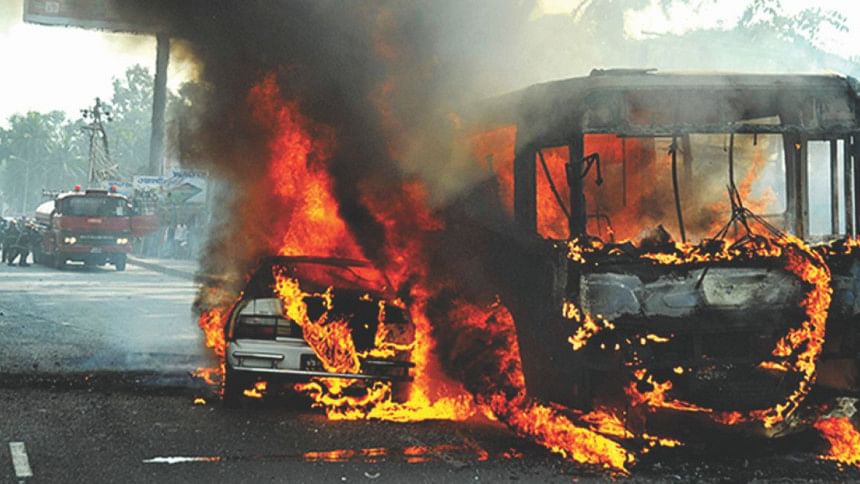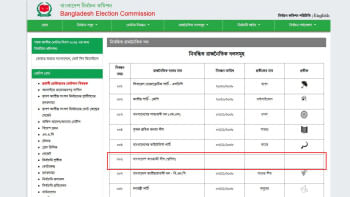Does political unrest have a positive side?

I won't be surprised if the title of the article raises many eyebrows. We have so far heard about the negative side of the recent political unrest. We know how many innocent lives were lost, how many people have been maimed or suffering in hospitals from serious burns. We read about the losses in the economic sector, the losses suffered by the farmers for not being able to market their produce and the losses incurred by the business community plus the day labourers. We saw the agony of the HSC and SSC examinees whose examinations were rescheduled every now and then and the damages in the education sector due to prolonged suspension of classes. We also witnessed the risks undertaken by the people while moving from one place to another. Among all the negatives, how can the political unrest have a positive side?
The answer is simple. A glass can be half empty or half full at the same time. Whether it is half empty or half full depends on how one looks at it. It is said that every cloud has a silver lining. Similarly, it is possible to discover some positive aspects also in the recent political unrest, no matter how much damage it did to our country.
On April 5, the BNP chairperson left her office, surrendered in court and returned to her residence in Gulshan getting bail in two graft cases she had been charged with. She stayed in her office for three months and virtually conducted the movement singlehandedly. At the moment, there is a lull in both blockade and hartal throughout the country even though there has not been any official announcement of total withdrawal of the programmes.
If we carefully analyse the recent events, we can learn several important lessons. Initially, the people were scared of the violence in the streets and decided to stay indoors. Gradually, they began to move out, at the risk of their lives, ignoring the blockade and the hartal. It shows their courage and determination. The same people came out on the streets against Ayub Khan in 1969 and H M Ershad in 1990 and toppled their governments. This time, they came out on the streets defying hartal to prove that violence does not pay. This is the most important lesson of the recent unrest which our politicians should always keep in mind.
The attitude of the people towards hartal has also changed. It has become evident that they no longer observe hartal unless the reasons are genuine or they are coerced to do so. A spontaneous hartal has practically become history now. If the intention of any hartal is only to change a government, there must be a clear outline of an alternative government with a better past record of governance, transparency, honesty, respect for human rights and socio-economic development than that of the incumbent government. The people are least interested in changing a government only for the sake of a change.
The people did not also appreciate the imposition of blockade and hartal during the SSC and HSC examinations. The turmoil badly affected the education of our children from primary up to the university level. No nation will gain anything by depriving education to the children. The children will never forgive us for the damage we have done to them. There should never be any political programme that adversely affects our education system.
The people have shown tremendous resilience during the turmoil. In spite of restrictions on movements, the supply of essential commodities has been maintained throughout the country even though the cost of transportation increased because of the involved risks, essential services like electricity, water and gas were not affected and our export earnings during last January through March remained normal. The farmers suffered losses but maintained the normal level of production. This resilience of the people of Bangladesh is unique. The present subsidence of the turmoil is really a victory for their courage, determination and resilience and defeat for the cowardness of the perpetrators of violence.
It is time for soul-searching for our politicians, particularly those who initiated the political movement without proper planning, without any understanding of the mood of the people and without any calculation of its outcome and continued it with unabated and irrational arrogance. The country will be immensely benefitted if they correctly analyse the events, take lessons from them and guide the future course of politics in a disciplined and civilized manner. This perception, if it ever comes in a fine morning, will surely add a silver lining to the recent political unrest and, perhaps, bring some solace to the souls of those who lost their lives during the movement.
The writer is a retired nuclear engineer.

 For all latest news, follow The Daily Star's Google News channel.
For all latest news, follow The Daily Star's Google News channel. 



Comments